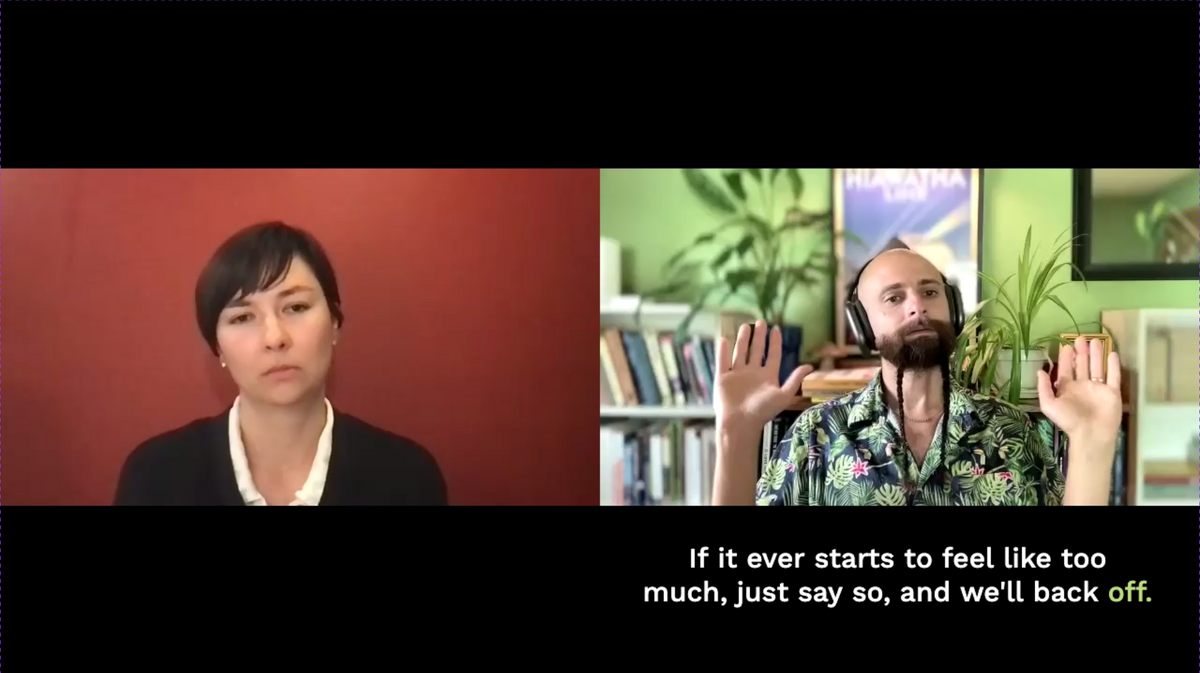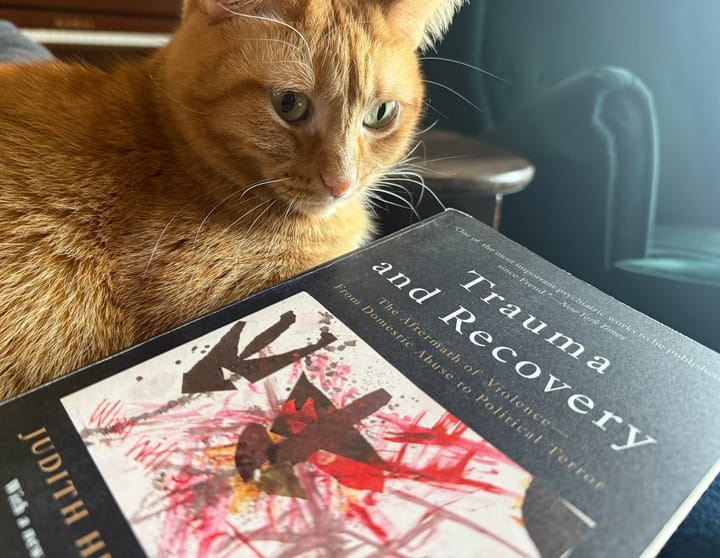Demo session 2: Why turning inward requires consent
When you’re experiencing emotional suffering, deliberately turning your attention inward can be daunting. Before I invite my client to start paying attention to her inner world, I explain why, and reassure her that she can stop at any time. Can you catch three requests for consent in this clip?

In the first few minutes of our demonstration session, my new coaching client “Michelle” (Alysa Haas) told me all the different ways she’s feeling about what’s going on in her life. Those mixed feelings led us to directly the internal conflict that brought her to my virtual office: while most parts of her want to have the baby she’s carrying, other parts of her do not agree.
The real work of our session begins just afterward, when I invite “Michelle” to turn her attention inward, toward all the different feelings she’s having. This is what Internal Family Systems practitioners call a “you-turn”: deliberately shifting your consciousness from the world outside you to the world within yourself. If you expect the sensations, thoughts, and emotions inside of you to be unpleasant or even overwhelming, turning inward can take great courage.
That’s why I carefully explain to “Michelle” the rationale for doing so. I assure her that, if what she finds in her inner world gets too intense, she can simply stop at any time. And I ask her, three times, for her explicit consent to continue. See if you can catch them all.
In the next part of our session, “Michelle” will encounter a part of her who’s feeling very intense indeed.
⏮️ Previous | All clips | Next ⏭️



